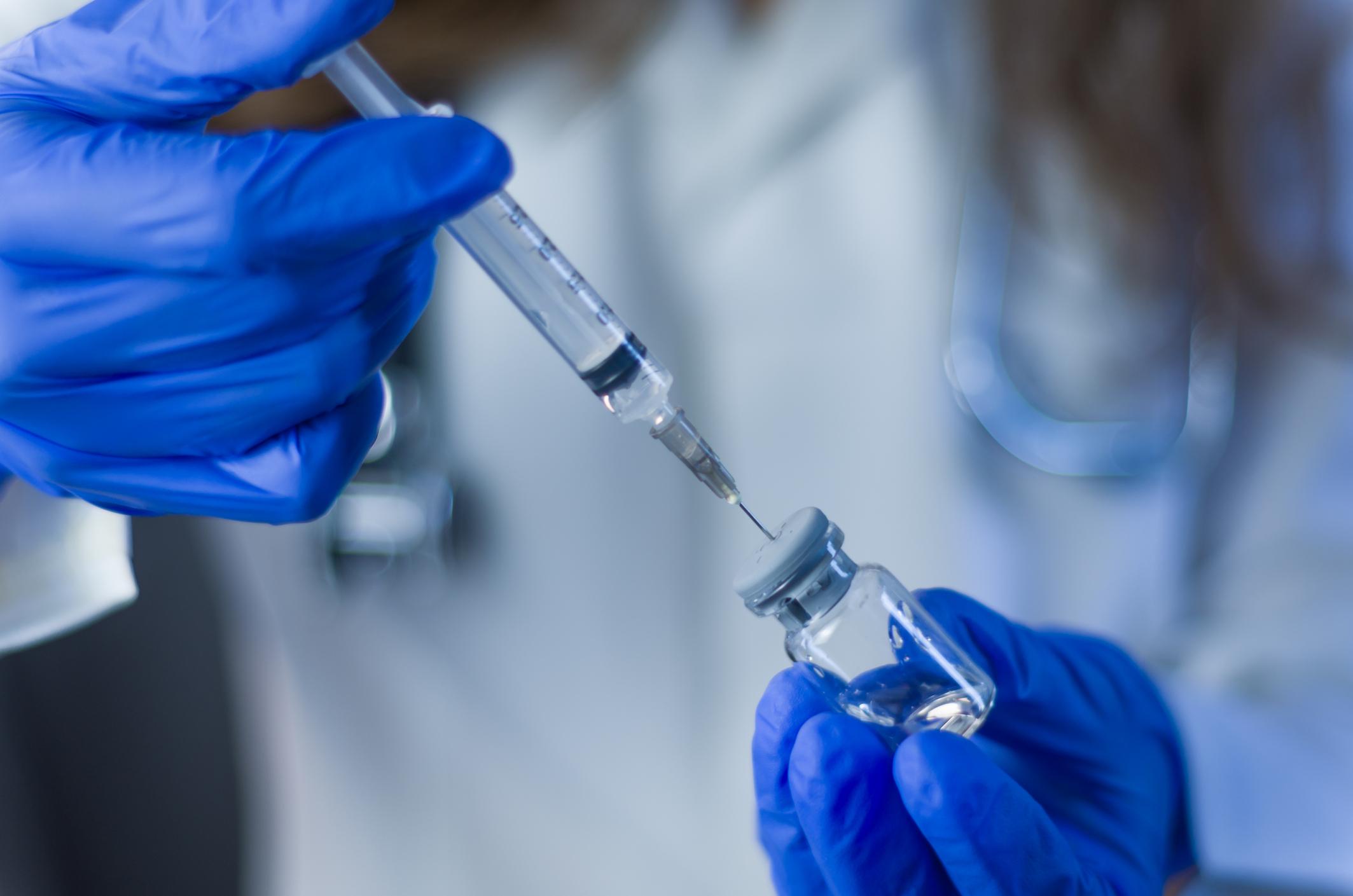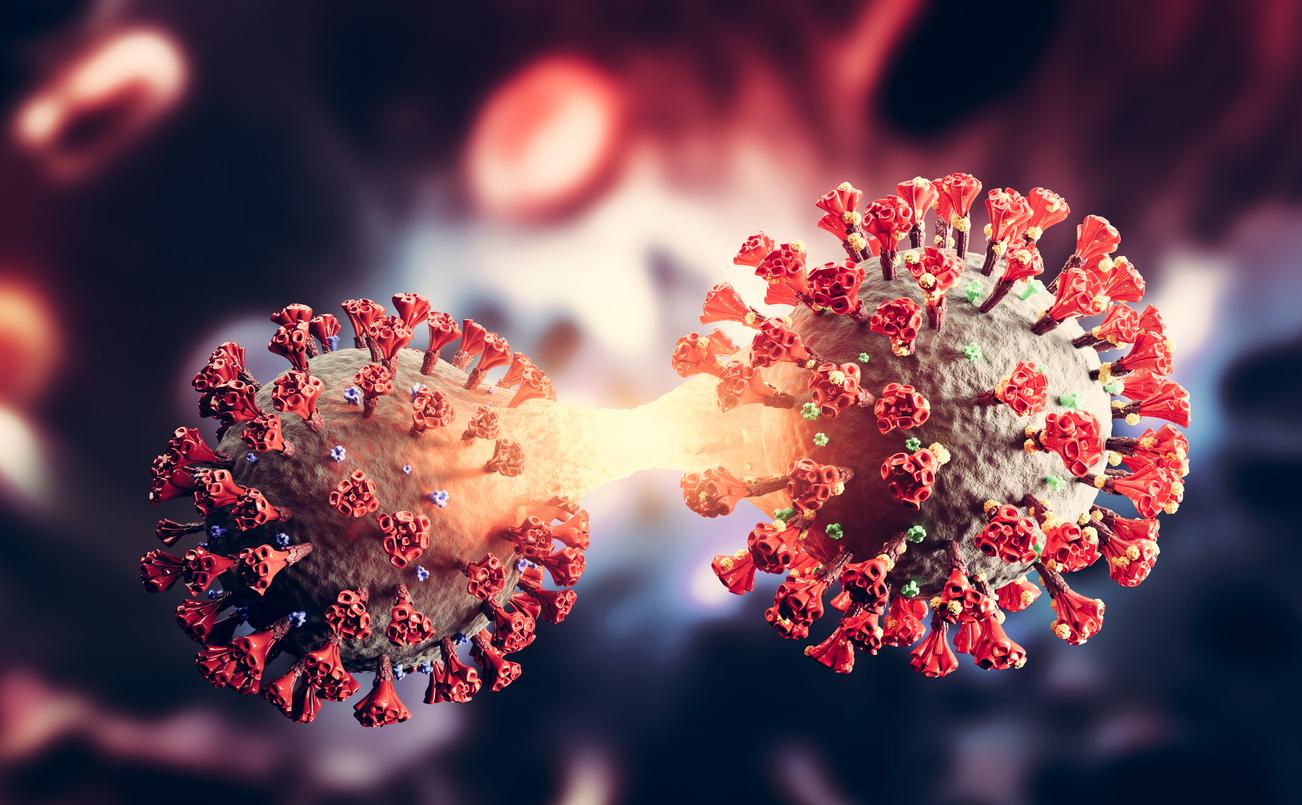The European Medicines Agency has started to evaluating the anti-inflammatory drug RoActemra (tocilizumab) to extend its use to the treatment of hospitalized adult patients with severe Covid-19, who are already receiving treatment with corticosteroids (dexamethasone) and require supplemental oxygen or mechanical ventilation (machine-assisted breathing).
The agency says in a press release, published Monday, August 16, that it will examine the results of four major clinical trials before an expected decision “by mid-October”.
Tocilizumab, an anti-inflammatory marketed as RoActemra
RoActemra is considered a potential Covid treatment due to its ability to block the action of interleukin-6, a substance produced by the body’s immune system in response to inflammation following Covid infection.
Several research teams around the world are trying to identify molecules (called immuno-modulators) capable of countering the “cytokine storm”, an over-reaction of the immune system, which manifests itself by a sudden inflammatory flare-up (around the 7th to 10th day) at the origin of the deterioration of the state of lung health severe patients. The objective is therefore to avoid their passage to intensive care.
To this end, several anti-inflammatory drugs are being tested to see if they can counter this excessive inflammatory reaction of the body.
the tocilizumab, an inflammatory mediator inhibitor, is one of them. It has been tested in several trials for over a year.
Encouraging results, the green light from the WHO
According to a study of nearly 11,000 patients, the anti-inflammatory drug tocilizumab reduces the risk of death in hospitalized Covid-19 patients and the WHO had recommended their use in severe patients.
This study (July 2021), published in the scientific journal JAMA, which compiles the results of 27 clinical trials in 28 countries on nearly 11,000 patients, shows that tocilizumab and sarilumab, two drugs used in the treatment of rheumatoid arthritis, can limit the hyper inflammation at the origin of the worsening of the condition of patients and therefore reduce deaths. According to its lead author, Manu Shankar-Hari, a professor at King’s College London, it is a “definitive piece of evidence”.
What are the conclusions? Among hospitalized patients, administering one of these two drugs at the same time as corticosteroids reduces the risk of death by 17%, compared with the use of corticosteroids alone. let’s remember that corticosteroids such as dexamethasone, which also have an anti-inflammatory effect, were the first treatment to be proven to reduce mortality from Covid-19.
In detail, the patients participating in the study were separated into two groups: 6449 received the treatment (sarilumab or tocilizumab) and 4481 received usual care or a placebo. The risk of death after 28 days among the group that received the treatment was 22%, compared to 25% for the others. By isolating only people who received treatment and corticosteroids simultaneously, the risk of death even fell to 21%. In addition, the risk of having to resort to an artificial respirator was also reduced with the treatment. “Given the global inequities for vaccines, people in the poorest countries are most at risk of severe cases of Covid-19. They are the ones these drugs need to reach.”
A molecule that brings hope
This molecule quickly aroused strong hopes. In 2020, the international REMAP-CAP trial (carried out on 300 patients), coordinated by the University of Pittsburgh, had thus concluded that there was an “important criterion of efficacy” in seriously ill patients, compared to patients who did not have received immune modulating therapy. Another observational study, conducted in France by the AP-HP, had also shown encouraging results with this molecule. According to the results published at the end of October in the journal JAMA Internal Medicine, patients who had received this treatment on day 14 had a reduced risk of dying from covid or having to resort to ventilation by 33%. On the other hand, at 28 days, the results were disappointing, no difference in mortality was observed.
Finally, an American study had shown that tocilizumab could be effective in combination with dexamethasone, a powerful corticosteroid, to reduce the mortality of severe patients.
More recently, however, the results of a clinical trial had contradicted these results. Covering 129 patients hospitalized in Brazil, all in serious condition, a study published in January 2021 in the journal British Medical Journal, out of 65 patients had not shown tocilizumab efficacy. It even showed a worsening of the patients’ condition, which prompted the researchers to interrupt the trial as a precaution. “Taking tocilizumab in addition to standard care was not effective in improving the clinical status of patients at 15 days, and could increase mortality”, then alerted the authors of the study. However, they pointed to the fact that the small number of patients included in this trial represented a major limitation to their work.
Sources:
- EMA starts evaluating use of RoActemra in hospitalized adults with severe COVID-19, August 16, 2021.
- Association Between Administration of IL-6 Antagonists and Mortality Among Patients Hospitalized for COVID-19A Meta-analysis, July 6, 2021.
- AFP, January 21, 2021
- BMJ, “Effect of tocilizumab on clinical outcomes at 15 days in patients with severe or critical coronavirus disease”, January 21, 2021.
- JAMA International Medicine,”Effect of Tocilizumab vs Usual Care in Adults Hospitalized With COVID-19 and Moderate or Severe Pneumonia”, October 2020.
- Press release, AP-HP, October 2020.
Read also:
- Covid-19: an immune signature for diabetic patients
- Covid: what if (finally) the blood group didn’t matter?
- Long Covid: symptoms persist in 60% of hospitalized patients
- AppliTousAnti-Covid Notebook: scan the QR code, download a certificate
- Covid-19: what is home oxygen therapy?


















